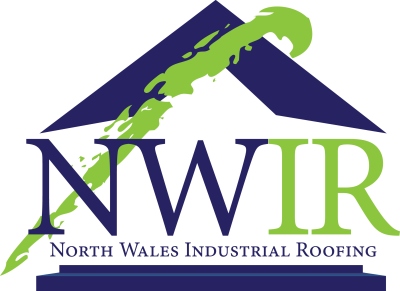Industrial Roof Safety Precautions
Falls from height account for a large percentage of injuries sustained in the workplace every year in the UK. However, qualified industrial roofing contractors only make up a fraction of these incidents. A large number of the individuals concerned are untrained in roofing work, and are on the roof for other reasons, for example servicing HVAC equipment.
The majority of injuries are sustained due to falls through fragile roof materials, such as roof lights and asbestos roofing sheets. Many of these roofing work accidents every year result in serious injuries, including permanent disabilities.
Roofing work is extremely dangerous for those who are untrained in roof safety. If you suspect a problem with your commercial roof, you should never try to inspect it yourself. This includes ‘just nipping up for a quick look’, as one wrong move could be all it takes for disaster to strike.
In this blog, we discuss the laws around roof safety and the precautions that should be taken by all contractors that set foot on your industrial roof.
Working at height – UK law
In the UK, there are several laws surrounding roofing work safety and working at height in general. These are:
- The Work at Height Regulations 2005
- The Health and Safety at Work Act 1974
- The Construction (Design and Management) Regulations 2007
- The Management of Health and Safety at Work Regulations 1999
- The Provision and Use of Work Equipment Regulations 1998
- The Lifting Operations and Lifting Equipment Regulations 1998
The first of these pieces of legislation is the most pertinent to roofing work, as it lays out the different measures that should be taken when working at height. It also specifies safety equipment that should be used for all roofing work, including safety lines.
What safety precautions should be taken when working at height?
No matter how small the task, all roofing work needs to be risk assessed.
All relevant precautions and roof safety equipment should be in place before the work commences. These may include:
Suitable access methods – This may be as simple as a secure ladder for smaller tasks, but for more complex roofing work scaffolding is always recommended.
Edge protection – Needed for all but the most basic of roofing work, this should always include a main guard rail. Depending on the nature of the job, toeboards, brickguards, and intermediate guard rails may also be required.
Work platforms – Where the industrial roof does not provide a secure working platform, this will need to be provided. Repairing a chimney on a pitched roof is a classic example of this.
Safety lines – A professionally installed roof fall arrest system is necessary for most industrial or commercial roofing work. Safety lines are designed to keep industrial roofing contractors (and anyone else who needs to access your roof) safe whilst working at height.
Accredited installers of safety lines
Here at NWIR, our safety lines and fall arrest systems are 100% compliant with the latest UK roof safety and working at height legislation.
We provide safety lines for contractors who need to access industrial roofs safely for various reasons, including servicing roof mounted equipment.
Get in touch
With over 100 years’ experience in roof safety, NWIR are one of the most accredited industrial roofing contractors in the UK.
To speak to our team about any aspect of roof safety, including safety line design, installation, or inspection, give us a call on 0800 046 1500.
Alternatively, you can send us a message using our online contact form and we’ll get back to you as soon as possible.
